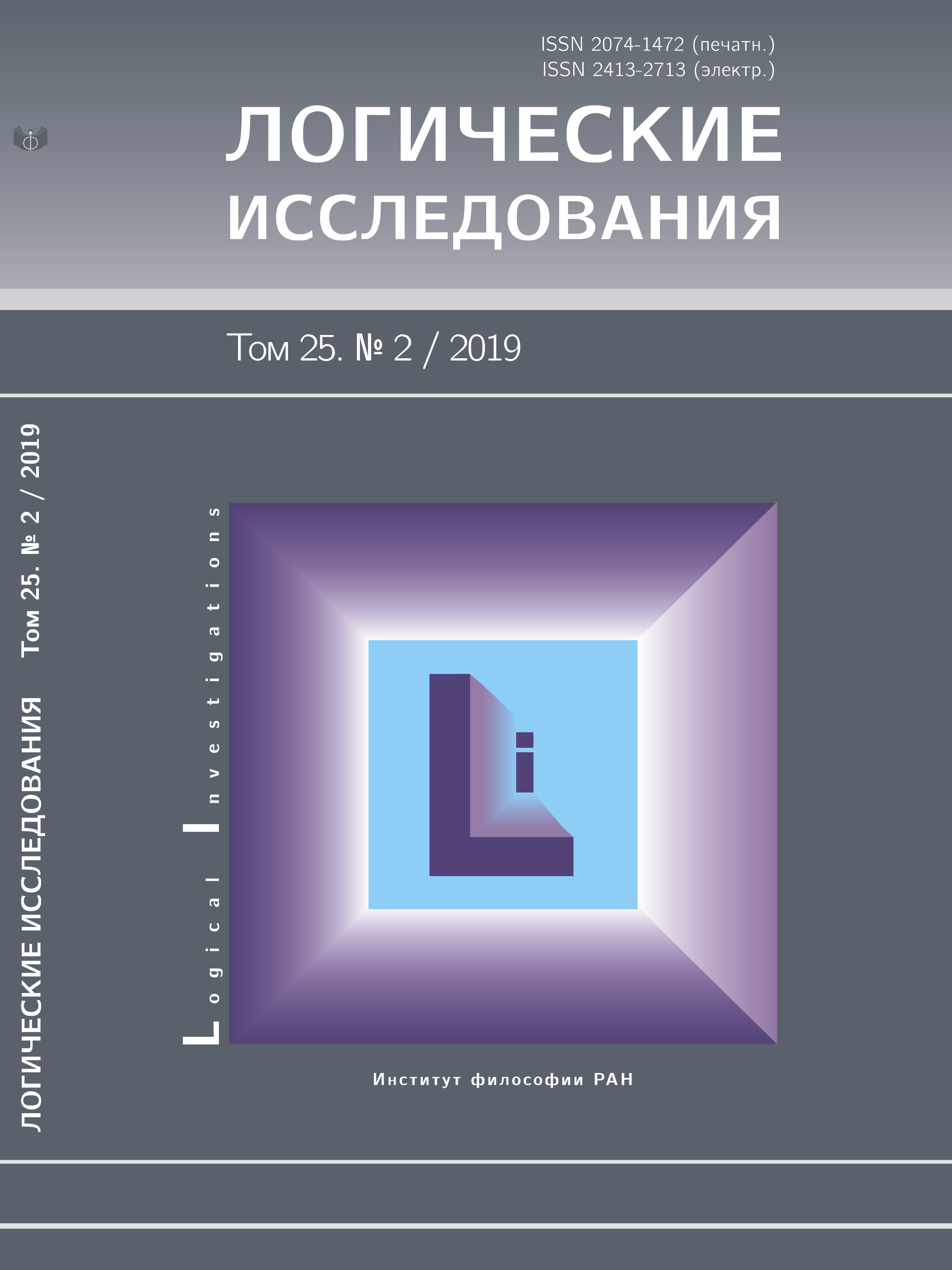Characteristic theories and inversion of substitution
##plugins.themes.bootstrap3.article.main##
Abstract
A Lindenbaum matrix of some logic is a logical matrix defined on the algebra of all formulas of this logic. The set of designated elements of this matrix is some theory of this logic. The~set of all such matrices is called the Lindenbaum bundle. The Lindenbaum bundle of some logic is a characteristic set of logical matrices for this logic. However, there are logics, such as classical logic, that are characterized by a single matrix. In this paper we obtain a number of criteria that logic has a characteristic matrix.
It is shown that the question of the presence of characteristic matrix is associated with the operation of inversion of substitution for a certain type of substitutions. Here under the operation of inversion of substitution we mean taking preimages of some set of formulas for some substitution.
The following criterion for the presence of a characteristic matrix for a logic is obtained: for a given logic there is no more than a countable characteristic matrix if, and only if, there is a theory for which the Lindenbaum matrix is a characteristic logical matrix of this logics. In obtaining this criterion, some properties of strict homomorphisms were used. The concept of characteristic theory is introduced, that is, such a theory for which Lindenbaum matrix are characteristic matrices.
As follows from the Lemma of Suszko's, for any structural logic, the set of all theories of this logic is closed under counterimages of substitutions. In this paper, we show that the theory $T$ is a characteristic theory if, and only if, any consistent theory is the intersection of all counterimages of $T$ obtained by substitutions mapping this theory into $T$. Thus, it turns out that a logic has a characteristic matrix if, and only if, there is such a theory $T$ such that any consistent theory is the intersection of all counterimages of $T$ that are obtained by substitutions mapping this theory into $T$.
As an illustration of the facts obtained in this paper, the characteristics theories of classical logic are considered. It is proved that any complete theory of classical logic is a characteristic theory. It is noticed that, any complete theory is a counterimage of some characteristic theory under some substitution.
##plugins.generic.usageStats.downloads##
##plugins.generic.usageStats.noStats##
##plugins.themes.bootstrap3.article.details##
How to Cite
Gorbunov I. A. Characteristic theories and inversion of substitution // Logicheskie Issledovaniya / Logical Investigations. 2019. VOL. 25. № 2. C. 9-25.
Issue
Section
Symbolic Logic
Copyright (c) 2019 Игорь Анатольевич Горбунов

This work is licensed under a Creative Commons Attribution-NonCommercial 4.0 International License.
References
Мальцев А. И. Алгебраические системы. М.: Наука, 1970. 392 с.
Мендельсон Э. Введение в математическую логику. М.: Наука, 1984. 320 с.
Расёва Е., Сикорский Р. Математика метаматематики. М.: Наука, 1972. 592 с.
Czelakowski J. The Suszko Operator. Part I // Studia Logica. 2003. Vol. 74. P. 181–231.
Font J.M., Jansan R., and Pigozzi D. A Survey of Abstract Algebraic Logic // Studia Logica. 2003. Vol. 74. P. 13–97.
Wojcicki R. Lectures on Propositional Calculi. Wroclaw: Ossolineum, 1984. 179 p.
Wojcicki R. Theory of Logical Calculi: Basic Theory of Consequence Operations. Dordrecht: Kluwer, 1988. 474 p.
Мендельсон Э. Введение в математическую логику. М.: Наука, 1984. 320 с.
Расёва Е., Сикорский Р. Математика метаматематики. М.: Наука, 1972. 592 с.
Czelakowski J. The Suszko Operator. Part I // Studia Logica. 2003. Vol. 74. P. 181–231.
Font J.M., Jansan R., and Pigozzi D. A Survey of Abstract Algebraic Logic // Studia Logica. 2003. Vol. 74. P. 13–97.
Wojcicki R. Lectures on Propositional Calculi. Wroclaw: Ossolineum, 1984. 179 p.
Wojcicki R. Theory of Logical Calculi: Basic Theory of Consequence Operations. Dordrecht: Kluwer, 1988. 474 p.
